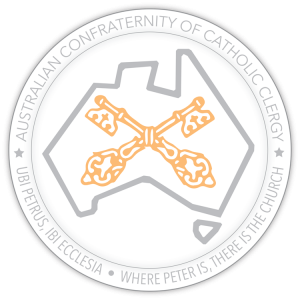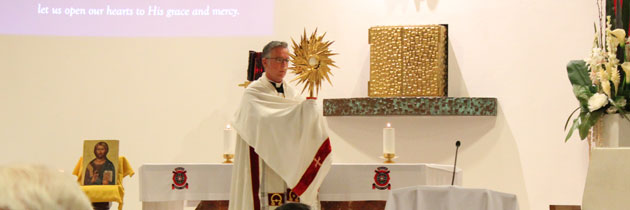How University Students (don’t) think
Cardinal Pell is a man of great foresight. In 2003 he invited the University of Notre Dame (Perth) to open a campus in Sydney with a view to setting up Catholic schools of Law and Medicine alongside Teacher training, Nursing, etc.
At the heart of this initiative lies a solid theology and philosophy department that oversees a core group of subjects in those areas that all students undertake. Now known as the Logos programme, I helped tutor the initial batch of 450 students in 2006. In the last six years numbers have greatly expanded into the thousands, such that the mustard seed has become a great tree in which all manner of birds come to take shelter. It has been a great pleasure to impart the wisdom of Aristotle to seminarians and to see several of my philosophy students become enclosed order nuns. I have even heard stories of relativists converting to a belief in truth! Yet there are many other birds who have hatched in materialist nests and been fed a diet of pragmatism in preparation for the HSC.
Epistemic Vices
The main aim of the Logos programme is to get students to think. In order to think with the Church you need to be able to think. This often means coaxing undergraduates out of epistemic vices formed at school, where the love of learning has been replaced with ornithological acts of regurgitation. What is truth? Whatever the marking criteria says it should be.
That is not to say that they are deprived of dogma, since there are certain almost universally held views that the lecturer must confront. Chief among these is the historically conditioned perspective. We believe what we believe today because today we believe it. Others believed what they believed because that was then but this is now.
For instance, in the past Catholics went to Mass and didn’t have abortions but today we believe in freedom and choice.
And slavery?
Slavery is wrong because today we think it goes against freedom and choice.
Not because it goes against intrinsic human dignity?
Oh no, it’s wrong today because today we say that it’s wrong because today we appreciate freedom and choice.
Truth and Consternation
Truth can be unsettling and many a university student is fearful of what consequences a search for truth might bring in its wake. The idea of commitment to a stance and having options closed off is quite terrifying. Indeed, a little Socratic reasoning can produce consternation:
Is everything a social construct?
Why yes.
And if social constructs change that’s neither better nor worse it’s just different?
Of course.
Is autonomy a social construct?
Like everything else, yes.
So it’s okay to have a society in which we take away your autonomy?
Huh?
Should we respect freedom and choice because it is grounded in human nature or because society grants us that right?
Society of course.
So if society decided to declare certain political prisoners to be non-persons we could experiment on them, take their organs, etc?
We don’t think like that today.
So our belief that it’s wrong to do so is simply because that’s what Australians think in 2012?
Yeah.
And is it going to be true of all times that people will believe on the basis of their social and historical conditions or do we just think that’s the way things are today?
Aaaaghhh, please don’t make me think!
Whilst not a few tutees enjoy the novelty of stringing ideas together nobody leaves without a headache. I almost fancy we will soon find ourselves in an Athenian future where the courts start charging philosophy tutors for veritic assault.
Teaching physicians
Of course I have encountered undergraduates who have assured me with a look of defiance that I’m not going to succeed in making them think, yet it is the very medical postgraduates who are especially averse to examining the foundations of their scientism.
Doctors love problem based learning and often see holistic medicine as a study of the whole bone. In a class exploring different approaches to human nature one of them complained out loud ‘but this keeps opening up new fields of inquiry rather than closing in on one of them!’
There is a fine line between keeping the examples relevant to the health profession and trespassing into areas beyond the competence of an outsider. In general the trick to teaching physicians is to get them to do the talking and tweak the discussion as one who seeks to learn.
There are other times, however, when fidelity to the Faith and the dignity of the human person makes it necessary to challenge and even offend. Islamic students feel nervous when talk turns to the Incarnation and the secular majority fly into a rage when homosexual liaisons are questioned. If ever there was an issue to dispel relativism it would have to be Same Sex Marriage.
The Marxism of our times
What “sanctity of life” is to Catholics, “reproductive rights” are to the secular majority: a self-supporting moral principle. During one of my theology classes to medical students an interjection was made in a disparaging tone about the role of missionaries. In response I claimed that the promoters of “reproductive rights” are no less colonial in their impacts and pointed to examples of forced sterilization in the developing world.
The class readily agreed to the need to decouple government population control policies – especially forced sterilization or abortion – from the issue of reproductive rights. Nevertheless, they maintained both surprise and suspicion at the claim that there could be anything nefarious about supporting the exercise of autonomy over one’s own body. Few had heard of the HHS Mandate in the United States and none of them seemed able to grasp Carter Snead’s point that the life issues raised by “reproductive rights” challenge the deepest public questions of who counts as a member of the human community, who decides and by what criteria? This is an area that Catholic philosophers would do well to target because sexual identity is shaping up to be the Marxism of our times.
Ethics classes
On the Broadway campus ethics classes are popular because they deal with everyday issues people can relate to: drugs, pornography, intellectual property theft and abortion. One of the most enjoyable tutorials I participated in concerned the application of utilitarianism by a ‘saint’ i.e. by somebody wholly convinced of the ethical maxim that they should maximise welfare. This would entail boosting others’ utility relative to the expenses incurred by your own search for pleasure.
If I spent my money on a Magnum ice-cream I would experience a lot of pleasure whilst my friends would have none. If I bought a packet of lollies that we could share instead then my own pleasure would be less but overall enjoyment would be greater.
The thought experiment we ran ended up with the class electing one of their own to date a very plain person, catching public transport to the movies and then not going but rather inviting everyone else on the bus back home to a game of charades. The need for criteria other than ‘the greatest good for the greatest number’ soon became apparent.
Eschatology
Alongside the universal acceptance of social constructs, reproductive rights and consequentialism, student views begin to diverge in matters of eschatology. One popular contender is a belief in reincarnation and this makes for interesting lines of questioning.
Do we come back again in a state determined by how good or bad we have been in this life?
Yes.
So people in a bad way now led evil lives in the past?
I guess so.
So you believe that underprivileged Aborigines are deserving of their plight because of past misdeeds??
Oh no, this only concerns India.
Ah, so reincarnation is geographically bound. Now, what would happen if an indigenous Australian travelled to India?
And so the interrogation continues. I have to confess I was really flummoxed when a young man told me that his religious views on reincarnation were informed by Stargate. No amount of argument that it was a TV programme with a script written by people like ourselves could dissuade him.
A renewal of faith and understanding
Overall, religious teaching and the accompanying Logos programme is bearing good and abundant fruit for the Church in Australia. Discussions about the relationship of faith and reason awaken Catholics to the notion that we are not Lutherans. Under the guidance of Mercy Sisters and graduates from the JP2 Institute, trainee teachers in particular are exposed to orthodox teaching and practice in the sacraments and liturgy.
I have been most impressed at the Graduation Masses in St Mary’s Cathedral to see how those finishing their time at Notre Dame know whether or not to receive Holy Communion and how to behave accordingly. Daily Mass attendance in St Benedict’s is high and a significant minority eagerly attend talks on Blessed John Paul II’s Love and Responsibility.
The Sydney Campus of Notre Dame is well placed to respond to the Holy Father’s call for a renewal of faith and understanding of the magisterial teachings of the Second Vatican Council.






